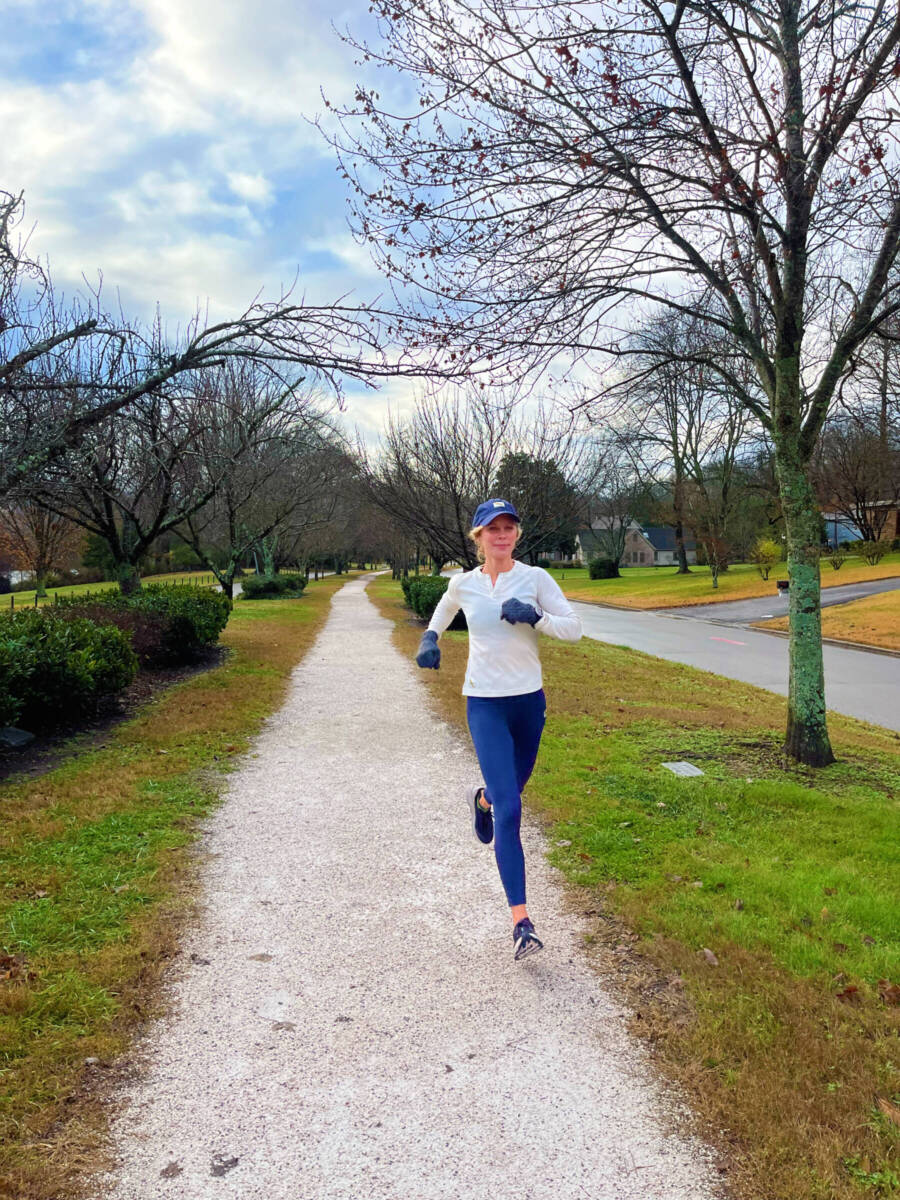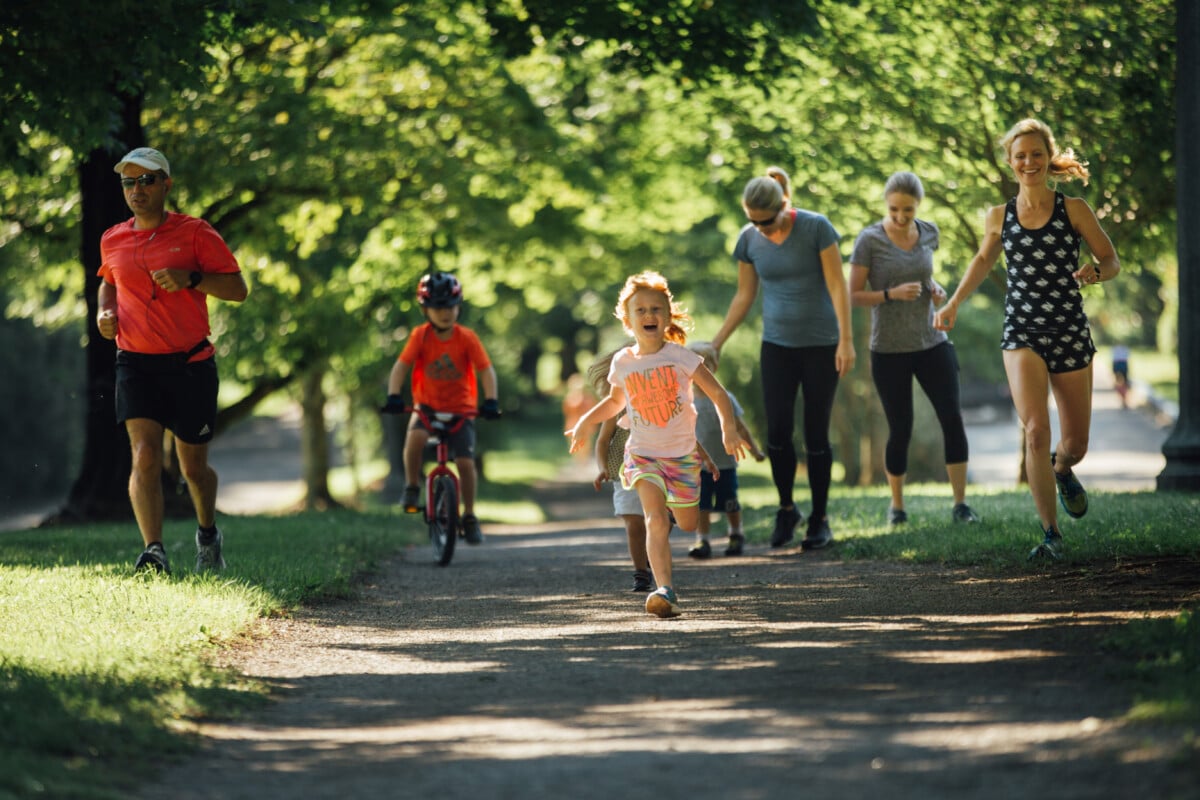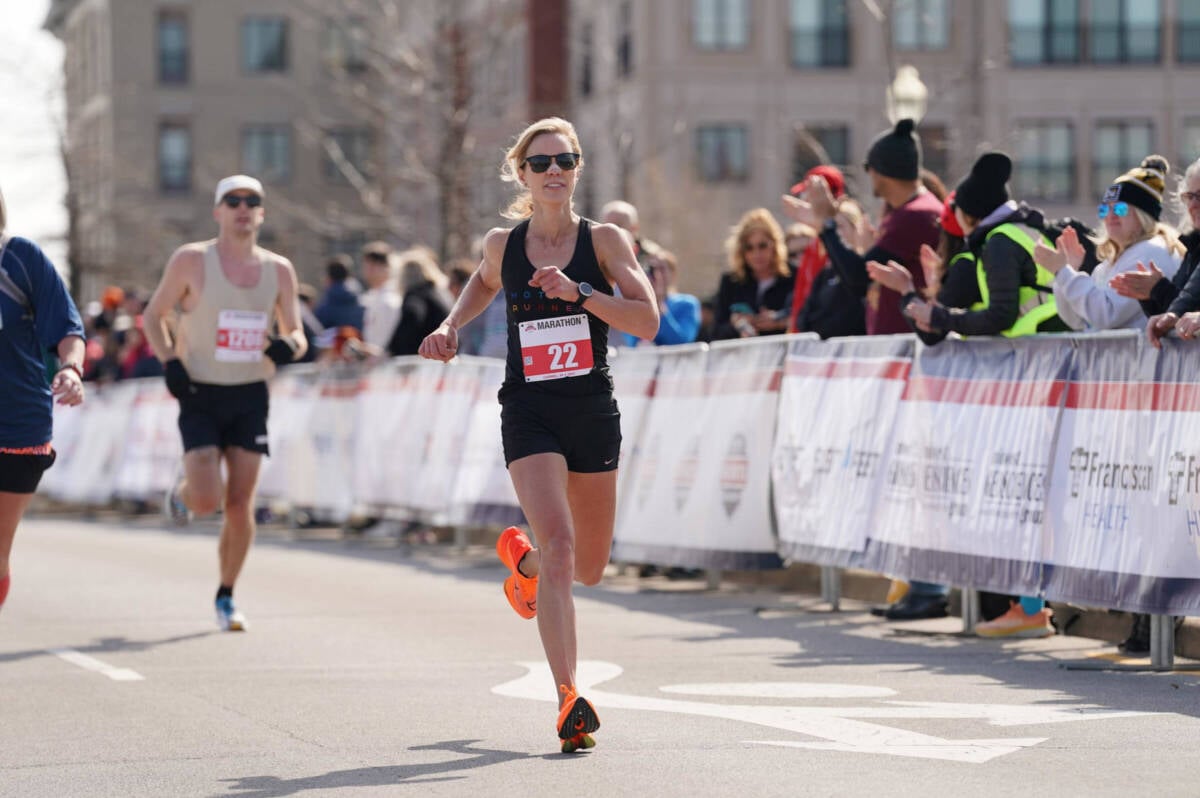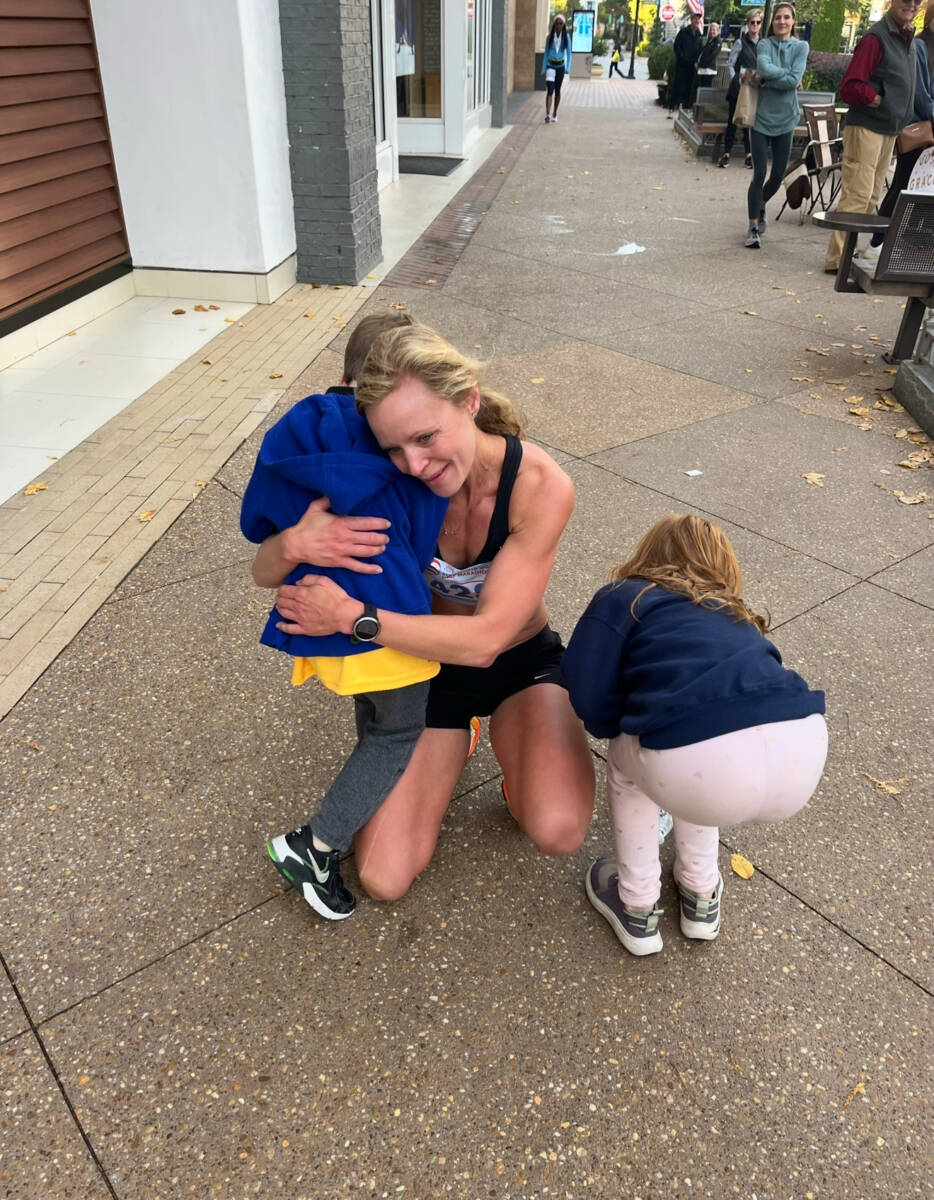9 Healthy Habits to Avoid Getting Sick This Winter
Next to injury, getting sick is a runner’s worst nightmare. And, unfortunately, as mother runners, we get hit with illness left and right this time of year. It’s COVID, then RSV, flu season, a strange surge in Hand Foot and Mouth and strep, a stomach bug, now it’s this cold that causes pink eye and a chronic cough… Despite our best efforts, these viral infections make their rounds making it near impossible to avoid getting sick.

So, how do you avoid getting sick when you’re around germs all the time?? There are ways to avoid getting sick—and bonus! A lot of these healthy habits will help with your running and overall health too. I did research and talked with people who never get sick to collect healthy habits to get you well if you’re sick and keep you healthy.
Table of contents
How I stayed healthy this year
I don’t know about you, but when our kids are showing signs of illness—or we came into close contact with someone who is sick—we go into panic mode. We don’t do well as a sick family. And, it’s worse when I am in marathon training season because I don’t want to miss training and stress over the key workouts I am missing.
We got hit with the flu (for the first time ever!) this fall during my peak marathon training weeks for the California International Marathon cycle. As a mom, it’s hard to train when your children are sick. And then, obviously, it’s not an option to run when you are sick. I followed the steps below to avoid getting sick as much as my family. I had a fever for a day or two, and my runs (when they resumed) felt labored with a higher-than-normal heart rate. But overall, I was unscathed.
This is rare for me. Usually, I don’t avoid illness when my kids are sick—especially when I’m training for a marathon. My immune system is often suppressed from the hard workouts and I’m usually exhausted from being up with the sick kids.
I truly believe the steps below are what helped me stay healthy then and when returning from my marathon back into a house full of cold germs. I hope these tips help you get healthy and stay healthy this winter!
How Not to Get Sick: 9 Healthy Habits to Get Healthy & Stay Healthy
1. Embrace the extra rest.
If you’re sick, remind yourself that taking a rest day now will save you from a longer layoff from running later. Resting is really hard for runners—but when you’re sick or in a house full of germs, it is the prudent thing to do.
Remember that it takes more than a week of inactivity for you to start to lose even a small amount of fitness. And what you lose, you gain back quicker—so don’t worry about getting out of shape!
2. Sleep.
Aim to get 7-9 hours of sleep a night (deep sleep is when we repair our bodies) and don’t feel guilty for laying around during the day. This is helping your body bounce back quicker!
Even when you’re not sick, sleep is crucial to avoid getting sick—especially when running.
“Exercise is a form of stress and more vigorous exercise creates more physiological stress which causes physiological and biochemical changes in the body. To tackle the potential threats these changes highlight, the immune cells may simply move out of the bloodstream to the lungs, for example.
“This still leaves our bodies vulnerable to infections and, generally speaking, the more strenuous the exercise, the longer it takes for the immune system to return to normal.
3. Hydrate.
If you’re sick, drink more fluids than you normally do. Staying hydrated helps your immune system work better by aiding the transport of oxygen to your body cells. Liquids can also help flush out toxins that negatively impact your immune system. This helps keep you healthy!
Also, avoid alcohol when sick and drink it sparingly when well since alcohol dehydrates you and impairs recovery.
4. Eat well.
Eating healthy will help you fight germs when sick and stay healthy. If sick, when you have an appetite, aim to eat a nutrient-dense diet containing the following:
- Fruits and vegetables. A rainbow of colors in fruits and vegetables about 75 percent of your diet) will give you a dose of antioxidants that help your immune system fight oxidative stress.
- Carbs. Carbs serve as the energy source for immune cells so make sure you are giving them the fuel they need to fight. Scientists have found that eating carbs, especially during and after exercise, helps regulate blood sugar levels. Aim for 30-60 grams of carbs per hour of running.
- Protein. Protein is used to make the antibodies necessary to fight infections and germs. Specifically, their amino acids ready your body’s T cells and B cells to fight and kill harmful invaders. Aim to get 4-2.0 grams per kilogram of weight.
Some immune-boosting foods to include in a well-balanced diet:
- Nuts
- Berries
- Sweet potatoes
- Fish
- Leafy greens
- Green tea
- Dark green and cruciferous vegetables
- Fresh fruits including citrus fruits
- Yogurt
- Poultry
5. Supplement your nutrition.
- Studies show that vitamin C and Zinc can help shorten colds.
- Taking vitamin D can also help you get healthy and stay healthy, studies
- Betaglucans can activate your immune system to be ready to fight.
I’ve managed to sidestep major illness this year thanks to taking Previnex’s Immune Health PLUS which contains beta-glucans.
Beta-glucans are natural defenders that boost the immune response by optimizing its response to viruses, pathogens, and infections. Studies have shown that beta-glucans act as immunomodulator agents, which means they can trigger a cascade of events to help regulate the immune system, thereby making it more efficient, effective, and powerful. I write more about how beta-glucans work here.
Anecdotally, the CEO of Previnex recommended I try the OTC homeopathic treatment Oscillo when I was feeling sick during one of our talks. The research shows they don’t really know how it works, but it does work in reducing symptoms and shortening illness. And, it did help me! Lots of moms on Instagram told me they keep it on hand at all times!
6. Take care of your gut.
A whopping seventy percent of your immune system lives in your gut so keep it healthy with healthy fats, sauerkraut, yogurt, and a probiotic. Regularly taking a probiotic decreases your chances of getting sick, so start taking one today to get healthy and stay healthy!
7. Exercise.
If you are sick, when the acute phase of your illness is over and you’re feeling better, try going for a walk (about 30 minutes). Repeat the walk the next day if you feel good and progress to a short run. (A running coach can help you with your schedule).
To stay well, keep up your running! Epidemiological evidence suggests that regular moderate exercise improves immunity and decreases the illness rate. The light activity will increase blood flow and help move white blood cells and nutrients to fight infection and remove waste products.
Remember that while a regular exercise routine can afford you a stronger immune system, intense exercise can suppress your immune system. Therefore, eat nutritious food and take it easy the day after running to recover well.
8. Practice good hygiene.
This is common knowledge, but it bears repeating—practice good hygiene. Washing your hands frequently with warm water is always a good idea! Keep hand sanitizer in your car and purse, and use it after touching surfaces in public places.
Limit your exposure to sick people—including when you are sick! Keep your distance when talking to people. Take showers. And, avoid sharing drinks and food.
9. Ease back into running.
If you were sick and had to take more than 10-14 days off running, then you need to gradually reintroduce your training. Don’t jump right back in or try to make up your mileage.
- If you took only a week off, you can return to running as normal but with several days of easy running before trying any speed workouts or long runs.
- For 2 weeks off, aim to do the first week of running at 50 percent of your typical training volume with no intensity. The next week of running can be at 75 percent of your regular training volume with some strides to reintroduce intensity.
If you feel worse or exhausted when you return to running, then you pushed too hard and need to reign it in. If you experience chest pain or tightness, light-headedness, or an irregular heartbeat, then you need to talk to your doctor! (I am not a doctor!)
FAQs About Avoiding Illness This Winter
How do I not get sick when my child is sick?
I posted this meme on Instagram when my kids were fighting the flu. So many moms commented that was them right now. It seems almost impossible not to get sick when your kids are–and breathing and coughing all over you 24/7.
But there are ways to protect yourself when living with someone who is sick. The following steps are the most effective ways to discourage the spread of germs and maintain a healthy immune system:
- Eat lots a nutrient-dense diet with Zinc, Vitamin C, Vitamin D, selenium, iron, and protein
- Wash your hands with hot water
- Limit your exposure as much as you can (I try to roll over so that my children aren’t breathing on me in bed…consider wearing a face mask)
- Keep sick people in a separate room from healthy people
- Take immune-boosting vitamins with zinc, Vitamin C and Vitamin D to encourage a healthy immune system
- Eat a healthy diet of whole grains, healthy protein, fruits, and vegetables
- Disinfect the house including door handles, faucets, and light switches
- Discourage sharing
- Use disposable cups, water bottles, and plates, and plasticware
- Replace personal items like toothbrushes
- Use clean tissues always
- Engage in light physical activity
- Try to get enough rest and enough sleep the best you can
- Ask for help
- Shower! And keep yourself clean
- Embrace survival mode and don’t sweat the small stuff
What to do with my kids when I’m sick?
Embrace survival mode when you’re a sick parent. Dr. Krupa Playforth of The Pediatrician Mom shared some great tips on this. When battling illness while trying to care for her sick children, Dr. Playforth says she does the following:
- Gave them unlimited screentime so she could nap
- Used paper plates, paper towels, disposable silverware, and order in food
- Played games that involved lying down and closing her eyes such as “Doctor” and “Spa”
- Skip the unnecessary parts of your routine such as bath time
- Allow your kids to make their own meals and feel good about the independence you are fostering
- Ask for help and share duties with your partner when you can
- Accept the mess and give yourself grace
What can suppress your immune system?
There are several lifestyle choices that can suppress your immune system and make you more likely to get sick. Some of these immune suppressants include:
- Alcohol consumption and smoking
- Eating unhealthy foods such as those with trans fats or processed food
- Getting less than 7 hours of sleep a night
- Intense exercise (especially without appropriate recovery)
- Excess weight
- Lack of exercise
- Chronic stress
Get more information on how to return to running after time off here. Has illness upended your run training?






